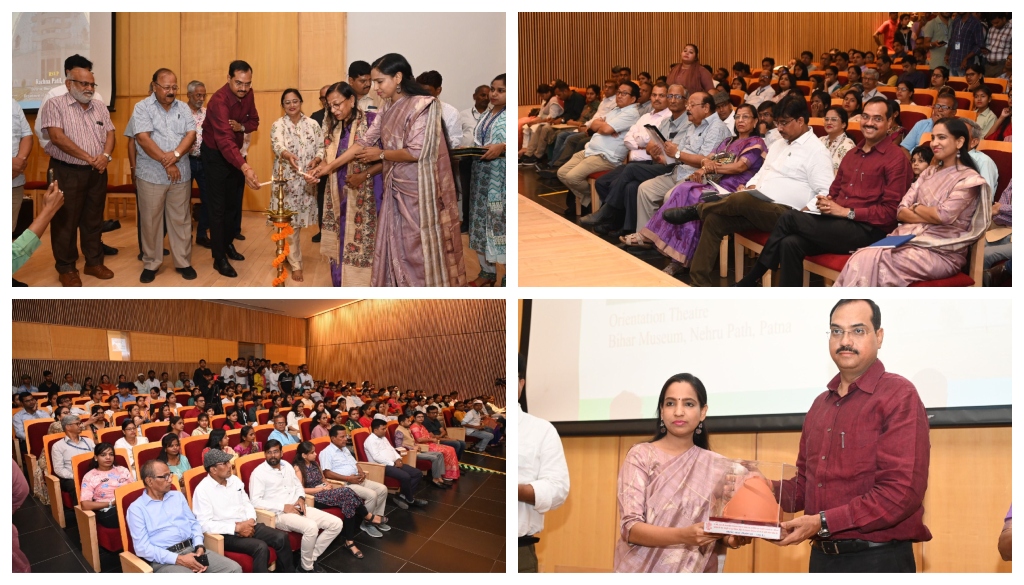Patna: On the occasion of International Museum Day, the Department of Art, Culture and Youth, Government of Bihar, organised a one-day seminar titled “Museum Meet” at the Bihar Museum in Patna. Themed “The Future of Museums in Rapidly Changing Communities”, the event drew experts, officials and heritage enthusiasts from across the country for in-depth discussions on the evolving relevance of museums in society.
The event was inaugurated by Pranav Kumar, Secretary of the Department of Art, Culture and Youth, who underscored the museum’s role as a vital link between the past, present, and future. In his keynote address, he lauded Bihar Museum’s growing popularity and called it “a matter of pride” that the state’s most-visited museum was hosting such a significant event.
“We are living in a time of rapid change,” Kumar said. “Museums not only preserve our heritage but offer a dynamic platform for public education, identity, and economic potential. Their relevance goes far beyond tourism.”
Director of Museums Rachna Patil (IAS) opened the seminar with a welcome address, highlighting how museums are increasingly becoming spaces for democratic engagement, learning, and cultural continuity. She remarked that the packed auditorium—with more attendees than available seats—was a sign of the growing public interest in museum culture.
The seminar featured a line-up of prominent speakers including Prof. Sanjay Jain, Prof. Usharani Tiwari, Dr. Anand Bardhan, Dr. D.N. Sinha, Dr. Ajay Kumar Pandey, Dr. Aarti Pandey, Dr. Tashi Phunsok, Dr. Sanjay Dhar, Dr. Umesh Chandra Dwivedi, Parvez Akhtar, and Prof. Achal Pandya.
Panel discussions explored critical themes such as the legal frameworks governing antiquities, disaster management for cultural heritage, community engagement, and the need for a uniquely Indian model of museum practice that avoids imitating Western templates.
Prof. Sanjay Jain noted that museums reflect not just historical narratives but also power structures, adding, “They can serve as instruments of cultural politics.”
Dr. D.N. Sinha and Parvez Akhtar both stressed the need to update existing laws to better suit current realities, while Dr. Umesh Chandra Dwivedi highlighted the fact that many Indian museums still operate without robust legislative backing.
Speakers also addressed the museum’s role as a public space open to all. “Whether rich or poor, anyone can walk into a museum. This accessibility is what makes it unique,” said Prof. Usharani Tiwari. Dr. Sanjay Dhar echoed this sentiment, calling for increased public respect for India’s cultural identity and a more concerted global showcase of its artefacts.
Dr. Anand Bardhan urged museums to move beyond technological display, advocating instead for a shift in public perception. “We don’t just need tech-driven museums—we need a mindset that values them,” he said.
The event concluded with a vote of thanks by Vimal Tiwari, Deputy Director of the Jan Nayak Karpuri Thakur Smriti Sangrahalaya. He emphasised the importance of continued dialogue and engagement to keep museums relevant to contemporary society.
The success of the seminar signals growing momentum for museum-based cultural dialogue in Bihar, with hopes that such initiatives will further integrate heritage institutions into the broader framework of social and educational development.

